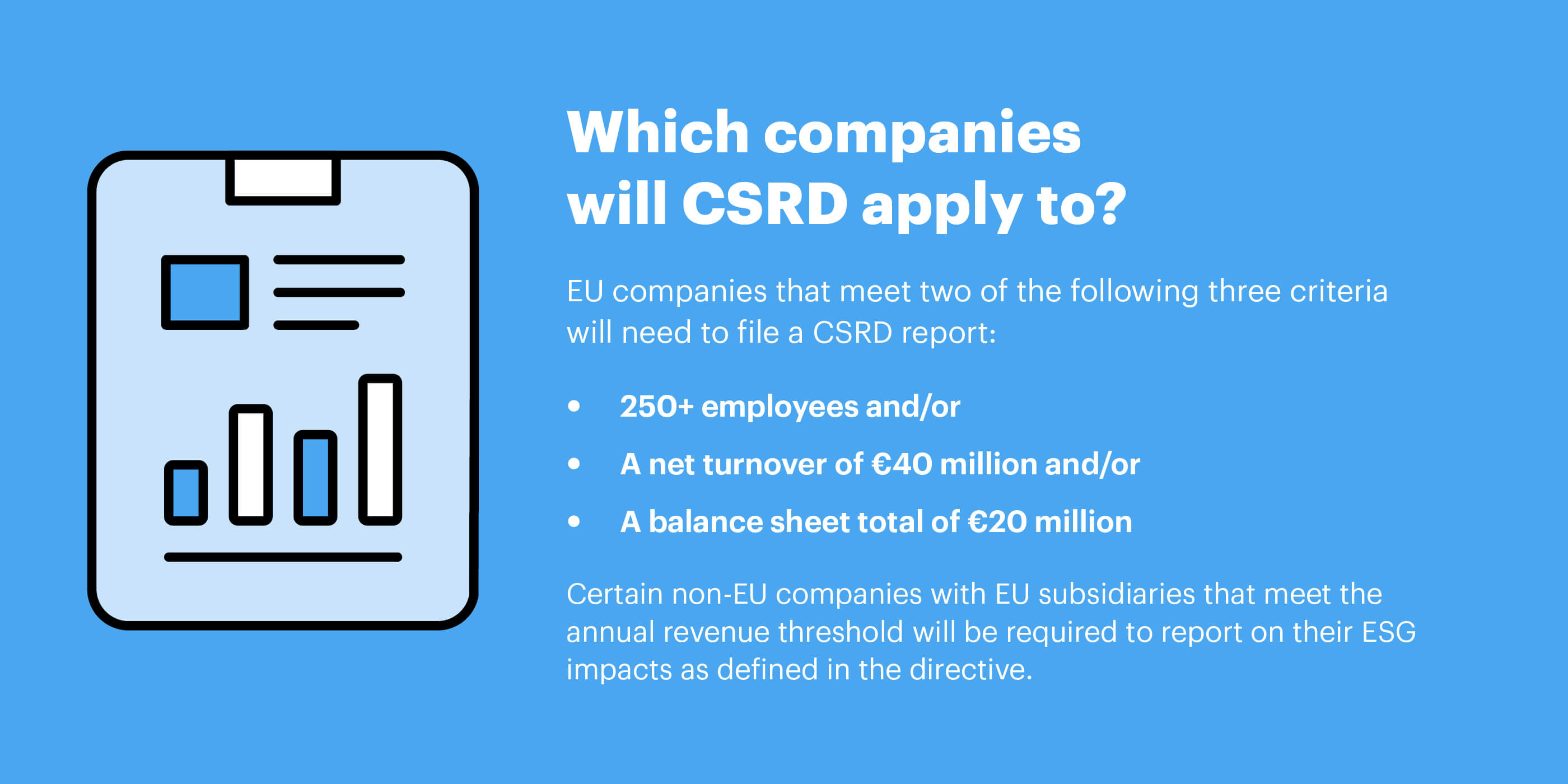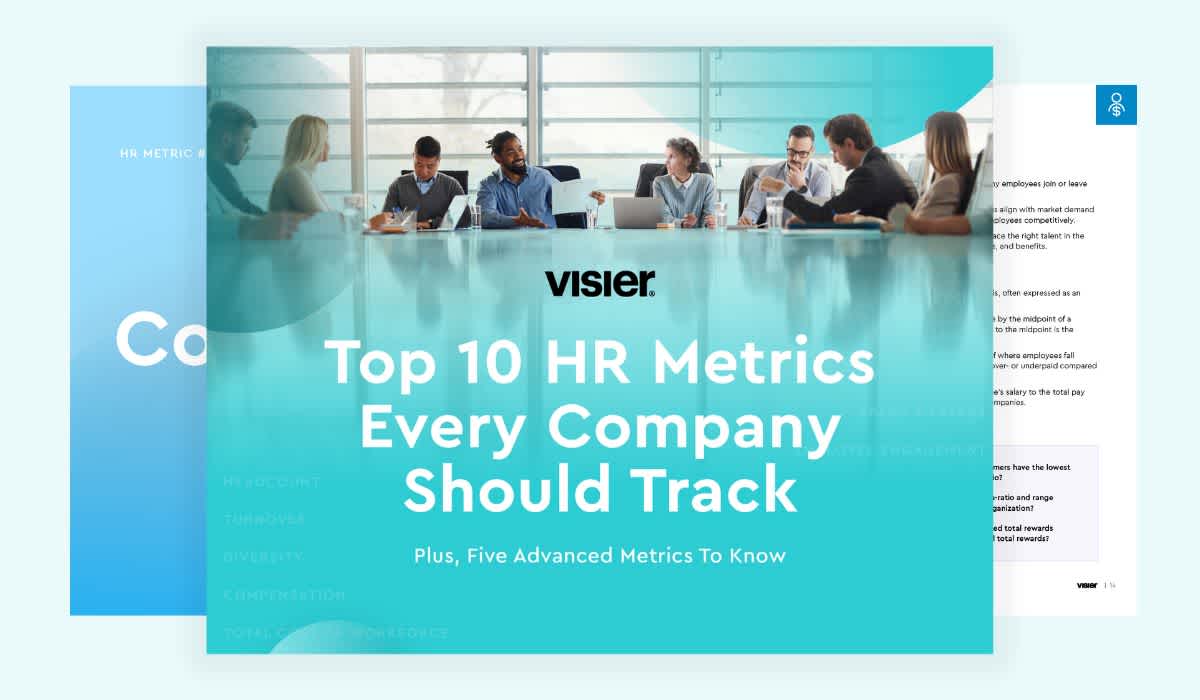How EU CSRD Increases HR’s Strategic Impact
The EU CSRD Own Workforce standards elevate the importance of people data in the corporate world, introducing a set of mandatory reporting requirements and increasing HR's strategic impact on the business.

The EU Corporate Sustainability Reporting Directive (CSRD) Own Workforce requirements put a sharper focus on the impact people have on business success, clearing a path for HR leaders to increase their strategic impact.
HR functions in EU companies have decisions to make that will shape their fates in the coming years. The Corporate Sustainability Reporting Directive elevates the importance of people data in the corporate world, requiring mandatory annual reporting of 30+ people metrics.
These include fairly straightforward measures, such as the number of full-time employees, as well as trickier, more sensitive elements like median pay ratios and gender pay gaps.
The EU CSRD ESRS S1 is a potential milestone point for HR leaders and people analytics, representing both a significant task and an opportunity to contribute at the highest levels of corporate governance and reporting.

What is the EU Corporate Sustainability Reporting Directive?
This CSRD is a European Union regulation that seeks to standardize how companies report on the impacts they have on the environment, their workforce, and wider society. The overarching purpose of the new rules is to provide more transparent data related to Environmental, Social, and Governance (ESG) standards for investors and other stakeholders. Within the legislation, the people measures required by the CSRD are referred to as Own Workforce.
CSRD will apply to EU companies that meet two of the three criteria:
250+ employees
Net turnover of over €40 million
Balance sheet total of over €20 million.
Certain non-EU companies with EU subsidiaries that meet annual revenue thresholds will be required to report on their ESG impacts as defined in the directive. Companies that fail to report and comply with the CSRD face fines of up to 10 million Euros, or 5% of annual revenue.

What does the Corporate Sustainability Reporting Directive mean for HR?
The EU CSRD increases HR’s impact on the business and elevates the role HR leaders play in strategic conversations. The CSRD standards relating to Own Workforce include mandatory structured reporting for 30+ different people metrics, putting the same emphasis on people impact as financial reporting.
This is the first time reporting on the workforce has been mandatory with substantial fines for non-compliance, signaling investors understand—and value—the impact of people on the business.
Surrendering these efforts to external consultants or another internal team is a missed opportunity at best. At worst, HR will be consigned to being a purely operational partner—rather than a strategic partner—in this process.
5 questions HR leaders must be able to answer
Are you and your HR team aligned with the right stakeholders in your business—including those with ESG remits—to deliver the ESRS S1 Own Workforce measures?
How will you review the Own Workforce requirements? Have you assessed workforce data readiness to deliver?
Do you have the appropriate tools to capture, analyze, and distribute the required workforce data insights? Can you do this easily, securely, on-demand and at scale?
Can you formulate an effective CSRD reporting plan that brings together the workforce data and the necessary commentary?
Do you understand how this will impact your business beyond fines? What does this mean for your employee brand and experience proposition?

CSRD requires more depth than data alone
The introduction of the CSRD sets a new standard for the depth and specificity with which companies need to account for their people and their impact on the climate. The new reporting requirements put the CHRO position under the same level of scrutiny as the CFO.
The Corporate Sustainability Reporting Directive requires HR have access to people data to respond to all of the Own Workforce requirements—but the data is just the base layer here. HR leaders need access to people analytics and insights to understand the how and why behind changes in the data and provide the required written commentary explaining key changes year over year.
Learn more about CSRD and HR's role:
To learn more about the CSRD Own Workforce requirements and what this means for businesses, watch the panel discussion with Yves Van Durme, Global Human Capital Leader - Organisation Transformation (Deloitte), Marc Croonen, CHRO Sustainability and Communication (Vandemoortele) and Ian Cook, VP Research and Strategy (Visier Inc).

Learn more about CSRD ESRS S1 reporting
ESRS S1 "Own Workforce" is a set of reporting disclosures included in the EU CSRD.
Get the scoop about what EU businesses need to know re: EU CSRD ESRS S1.
Workforce reporting requirements in CSRD will increase transparency amongst C-level executives, internal employees, and external stakeholders. Here's what executives need to know.
New workforce-related requirements around ESG reporting should be firmly within the domain of the HR department. Learn why, and the benefits for organizations.


